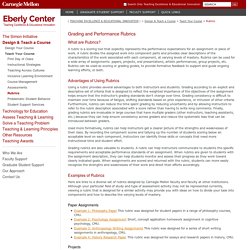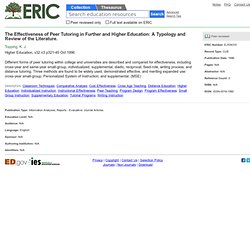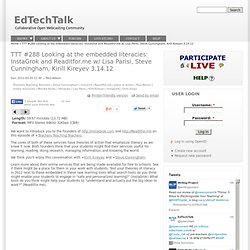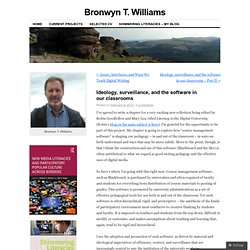

Befristung-intl-Vergleich. Rubrics. What are Rubrics?

A rubric is a scoring tool that explicitly represents the performance expectations for an assignment or piece of work. A rubric divides the assigned work into component parts and provides clear descriptions of the characteristics of the work associated with each component, at varying levels of mastery. Rubrics can be used for a wide array of assignments: papers, projects, oral presentations, artistic performances, group projects, etc.
Rubrics can be used as scoring or grading guides, to provide formative feedback to support and guide ongoing learning efforts, or both. Advantages of Using Rubrics Using a rubric provides several advantages to both instructors and students. Used more formatively, rubrics can help instructors get a clearer picture of the strengths and weaknesses of their class. Grading rubrics are also valuable to students. Examples of Rubrics Here are links to a diverse set of rubrics designed by Carnegie Mellon faculty and faculty at other institutions. Visible Learning for Teachers: 20150219-Uni-Frankfurt. How language changes over time. The Effectiveness of Peer Tutoring in Further and Higher Education: A Typology and Review of the Literature. Different forms of peer tutoring within college and universities are described and compared for effectiveness, including cross-year and same-year small-group, individualized, supplemental, diadic, reciprocal, fixed-role, writing process, and distance tutoring.

Three methods are found to be widely used, demonstrated effective, and meriting expanded use: cross-year small-group; Personalized System of Instruction; and supplemental. (MSE) Descriptors: Classroom Techniques, Comparative Analysis, Cost Effectiveness, Cross Age Teaching, Distance Education, Higher Education, Individualized Instruction, Instructional Effectiveness, Peer Teaching, Program Design, Program Effectiveness, Small Group Instruction, Supplementary Education, Tutorial Programs, Writing Instruction. Learning with 'e's. TTT #288 Looking at the embedded literacies: InstaGrok and Readitfor.me w/ Lisa Parisi, Steve Cunningham, Kirill Kireyev 3.14.12. Printer-friendly version Send by email Length: 59:57 minutes (13.72 MB)Format: MP3 Stereo 44kHz 32Kbps (CBR) We want to introduce you to the founders of and on this episode of +Teachers Teaching Teachers.

The cores of both of these services have theories of action that emphasize literacy as we know it now. Both founders think that your students might find their services useful for learning, reading, doing research, managing information, and knowing the world. We think you'll enjoy this conversation with +Kirill Kireyev and +Steve Cunningham. Learn more about their online services that are being made available for free to schools.
50 Google+ Circles Teachers Should Know About. Steven Pinker: The stuff of thought. Educating the 21st Century. Millie's Yiddish Class. GerGermanGrammarPodcasts. Dan Ariely. Dan Ariely Home Page. Dan Ariely on our buggy moral code. Ideology, survelliance, and the software in our classrooms. I’ve agreed to write a chapter for a very exciting new collection being edited by Robin Goodfellow and Mary Lea, titled Literacy in the Digital University (Robin’s blog on the same subject is here).

I’m grateful for the opportunity to be part of this project. My chapter is going to explore how “course management software” is shaping our pedagogy – in and out of the classroom – in ways we both understand and ways that may be more subtle. More to the point, though, is that I think the construction and use of this software (Blackboard and the like) is often antithetical to what we regard as good writing pedagogy and the effective uses of digital media. So here’s where I’m going with this right now. Course management software, such as Blackboard, is purchased by universities and often required of faculty and students for everything from distribution of course materials to posting of grades. But all is not grim. Like this: Like Loading... Soziologie - Kritik zu Heinz Bude: „Bildungspanik. Was unsere Gesellschaft spaltet“ Folgt man der Devise Pierre Bourdieus, dass Soziologie ein Kampfsport sei, dann tritt Heinz Bude mit seinem aktuellen Essay in der Schwergewichtsklasse an.

Denn um das richtige Bildungssystem wird mit harten Bandagen gekämpft. Der in Kassel lehrende Soziologe verspricht nun „überraschende Lösungen für diesen „kulturellen Klassenkampf“. Dass es die tatsächlich bräuchte, zeigt die Kompromisslosigkeit der Gegner. Auf der einen Seite stehen die Apologeten der Gesamtschule, die mit dem gemeinsamen Lernen die „institutionellen Ghettos im Bildungssystem“ abschaffen wollen.